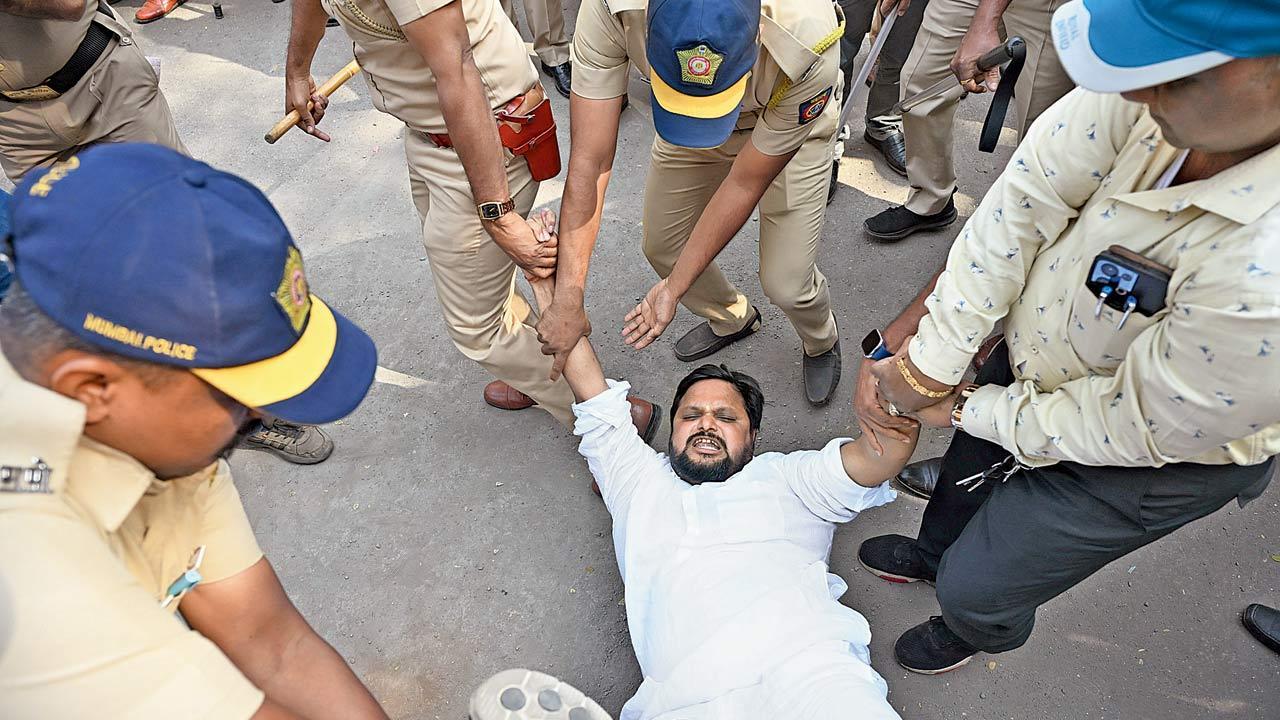One nice thing about being constantly nonchalant is how we can always move on quickly from every news story

It’s great that we aren’t interested in why other Indians are protesting because it allows us to focus only on our problems. It just costs too much to care. Representation pic/Sayyed Sameer Abedi
 When people outside India think of Indians, I’m pretty sure they usually think of us as calm, rational, peaceful vegetarians who have a deep respect for our land and all beings that roam upon it. This always amuses me because it only proves that those living outside our borders don’t watch our news channels. They presumably rely on Instagram influencers for information, which is unfortunate because our news channels do a lot to showcase who we really are. If I were asked to describe my countrymen, the one quality I would identify as common to the majority is nonchalance. I believe it is now an intrinsic part of who we are.
When people outside India think of Indians, I’m pretty sure they usually think of us as calm, rational, peaceful vegetarians who have a deep respect for our land and all beings that roam upon it. This always amuses me because it only proves that those living outside our borders don’t watch our news channels. They presumably rely on Instagram influencers for information, which is unfortunate because our news channels do a lot to showcase who we really are. If I were asked to describe my countrymen, the one quality I would identify as common to the majority is nonchalance. I believe it is now an intrinsic part of who we are.
ADVERTISEMENT
There may be all kinds of reasons for why this has happened, because it must have been a slow process. Our ancestors obviously cared about a lot of things, proof of which lies all around us if we care to stop and look. And then, over centuries, that need to care started to disappear. It could be a psychological thing; a defence mechanism of sorts to protect ourselves from the trauma of dealing with everyday bureaucracy. Or maybe it’s always been a part of us, hiding just beneath the surface.
Now, we are all nonchalant. Think about it. If you were asked to discuss a tragedy—any kind, because there’s so much variety to choose from—that occurred a month or so ago, would you be able to discuss the details if it didn’t involve you directly? An accident, perhaps, or a particularly brutal crime, some example of governmental oversight, or bureaucratic hurdle that led to a loss of life? Chances are you may remember a headline or two, but little about what happened and, more importantly, if anyone was held responsible.
Consider the fact that there have been multiple protests in parts of India over the last two years. Maybe you heard a few rumours, read a few articles, and saw a few visuals that confirmed the presence of angry people with placards. You probably can’t comment on whether the reasons for those protests were legitimate, whether human rights were involved, or whether supporting them in any way would have any impact on you, can you? If this is true, congratulations, you’re just like most other Indians.
When people use the word ‘apathy’, they usually think of it as a bad thing, as a feeling of indifference that is harmful. What most people don’t realise is that apathy can be positive, a force field that prevents one from expecting too much of the world. It is the only explanation I can come up with for why most of us are increasingly indifferent to injustice, anger and relentless bigotry. It just costs too much to care.
It’s great that we aren’t interested in why other Indians are protesting because it allows us to focus only on our problems. It’s great that we don’t look too closely at accidents that claim multiple lives because we can then trick ourselves into believing that we will always be safe when we step outside. And it’s great that we expect most criminals to get away scot-free because it allows us to participate in systemic corruption without worrying about consequences. This is what helps us sleep at night.
If this sounds like a rant, that is not my intention. This is a column about positivity and how Indians continue pointing the way forward for other nations. It’s also meant to counter a post made by a British citizen a couple of weeks ago, where he referred to India as a dump that didn’t care about its heritage, infrastructure, environment, hospitality, or hygiene. There were a lot of people who disagreed, luckily, because we made deniability our official policy around ten years ago, but I was pleased to see that most people just shrugged and moved on.
To not react when something is wrong is a smart thing to do and we’re getting better at it. If we pretend that everything is fine, and that every problem is a minor one, we may get to that state of calm our ancestors spent centuries trying to reach. We should begin each day by telling ourselves that we are the best at everything, even if thousands of signs point to the opposite. And those who disagree with us should be asked to leave. There is no place for truth in tomorrow’s India, and the sooner we accept that, the better patriots we will be. Jai Hind.
When he isn’t ranting about all things Mumbai, Lindsay Pereira can be almost sweet. He tweets @lindsaypereira
Send your feedback to [email protected]
The views expressed in this column are the individual’s and don’t represent those of the paper
 Subscribe today by clicking the link and stay updated with the latest news!" Click here!
Subscribe today by clicking the link and stay updated with the latest news!" Click here!







